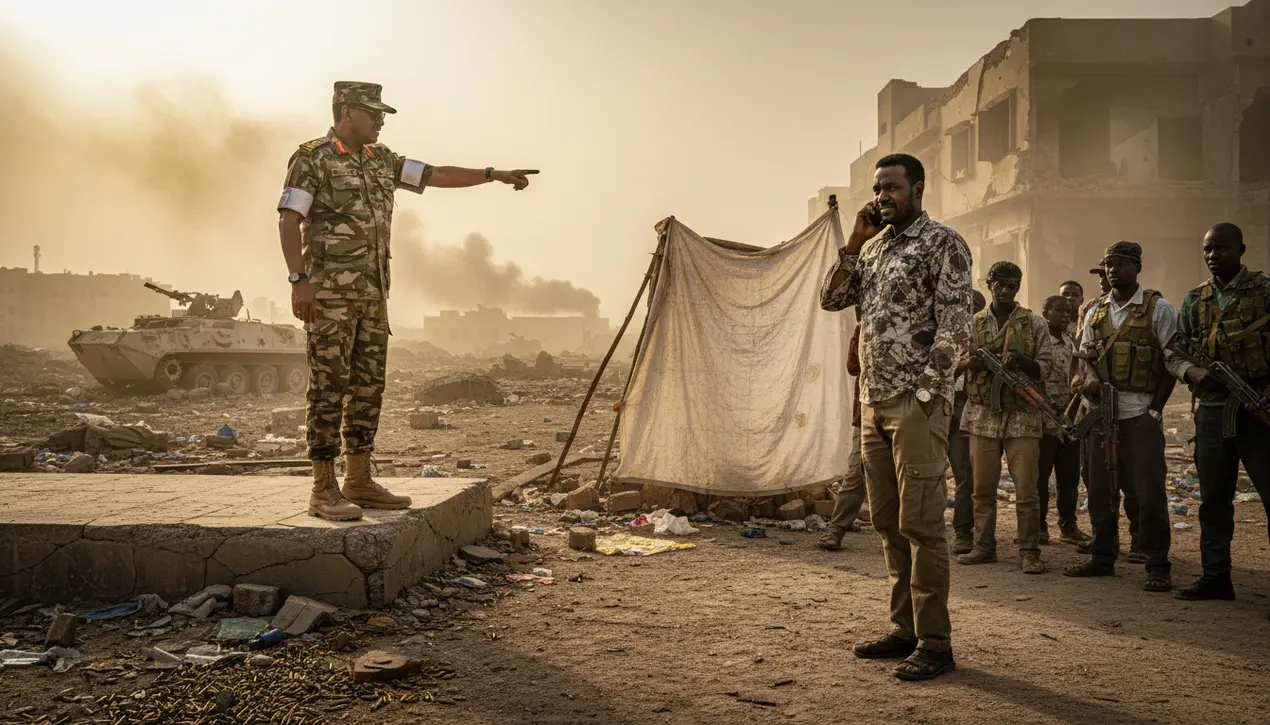
Politicsconflict & defenseMilitary Operations
The two men fueling Sudan's civil war.
EM
Emma Wilson
2 hours ago7 min read
The brutal civil war tearing Sudan apart is fueled by the personal ambitions and violent histories of two men: General Abdel Fattah al-Burhan, leader of the Sudanese Armed Forces (SAF), and Muhammad Hamdan Dagalo, known as Hemedti, commander of the paramilitary Rapid Support Forces (RSF). This conflict, marked by horrific human rights abuses and a recent strategic shift with the RSF's capture of El Fasher, has effectively split the nation in half.The recent announcement by former President Donald Trump, responding to a request from Saudi Crown Prince Mohammed bin Salman, that the US would intervene to end the war, throws a new, uncertain variable into a crisis that has defied resolution for years. The relationship between Burhan and Hemedti is not merely a clash of armies but a product of a decades-long cycle of violence and impunity that has shaped Sudan's political culture.General Burhan presents himself as the head of Sudan's legitimate government, a claim recognized by the United Nations, and seeks to restore a pre-war status quo. He is a career military officer with a checkered past, having served in the devastating Darfur conflict two decades ago and later leading Sudanese troops in Yemen under Saudi and Emirati patronage.His power base, however, is fractious and reliant on deeply entrenched Islamist factions within his coalition—groups that are often better funded and more ideologically rigid, and who have repeatedly vetoed moves toward peace talks. While Burhan's forces have themselves been accused of war crimes, including blocking humanitarian aid to rebel-held areas, their transgressions are often framed within a context of military strategy and a lack of discipline.In stark contrast stands Hemedti, a figure whose rise from a notorious Janjaweed militia commander to a billionaire warlord encapsulates Sudan's descent into mercenary violence. I first encountered his name twenty years ago in African Union monitor reports detailing the destruction of a Darfur village named Adwa, where 128 people, including 38 children, were killed.Even then, Hemedti did not conceal his responsibility; he boasted of the long-planned operation. His charm belies a ruthless nature, and over the years he has parlayed his military prowess into a vast commercial empire, seizing control of gold mines and building a private army with loyalties to his family, not the state.His forces have conducted a campaign that can only be described as genocidal, from the systematic ransacking of Khartoum at the war's outset to the recent horrors in El Fasher. There, civilians endured 18 months of suspended terror under drone attacks targeting hospitals, followed by a house-to-house reign of murder and rape, often filmed by the perpetrators with chilling relish.Hemedti cynically claims to be a champion for democracy and the marginalized, but his actions reveal an ambition to run Sudan as a family business, with the RSF as its enforcement arm. The trauma that produced these two men runs deep.As explained by Alex DeWaal of the World Peace Foundation, who has studied Sudan for over forty years, the current conflict is the latest manifestation of pressures that have been building for generations. He recounts a meeting forty years ago with a sheikh from a nomadic Arab tribe who lamented that famine meant the end of their way of life.That sheikh's son would later become the head of the Janjaweed, only to be displaced by his own more ruthless deputy, Hemedti. This intergenerational story illustrates how environmental stress, poverty, and relentless conflict have forged a political culture where mercy is a liability and power is the only currency.The international community's recognition of Burhan, while pragmatic, has arguably lent legitimacy to one side of a deeply flawed dichotomy. The question now is whether external intervention can break a cycle that has consumed the country for decades, or if it will simply add another layer of complexity to a war driven by two men who are both products and perpetuators of Sudan's enduring agony.
#Sudan
#civil war
#Rapid Support Forces
#Sudanese military
#human rights
#featured
#Hemedti
#al-Burhan
Stay Informed. Act Smarter.
Get weekly highlights, major headlines, and expert insights — then put your knowledge to work in our live prediction markets.
Comments
Loading comments...
© 2025 Outpoll Service LTD. All rights reserved.